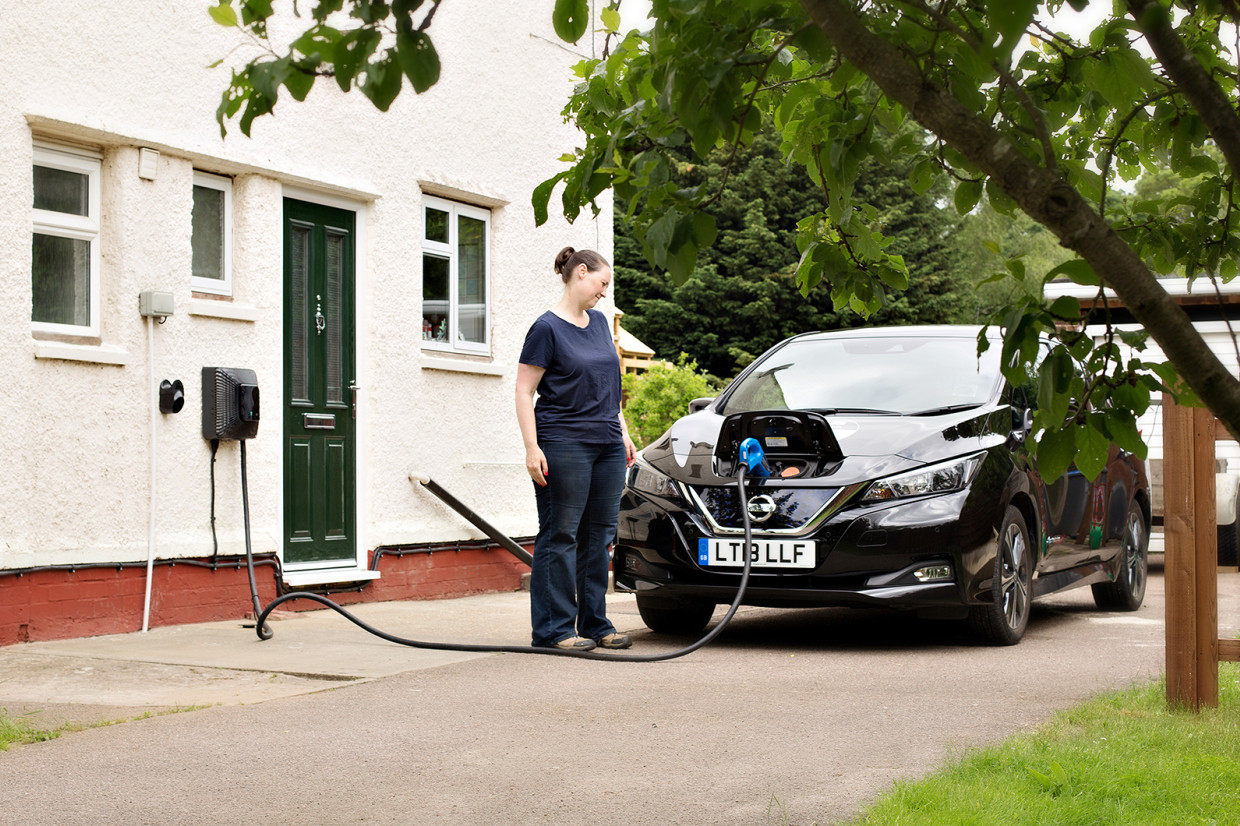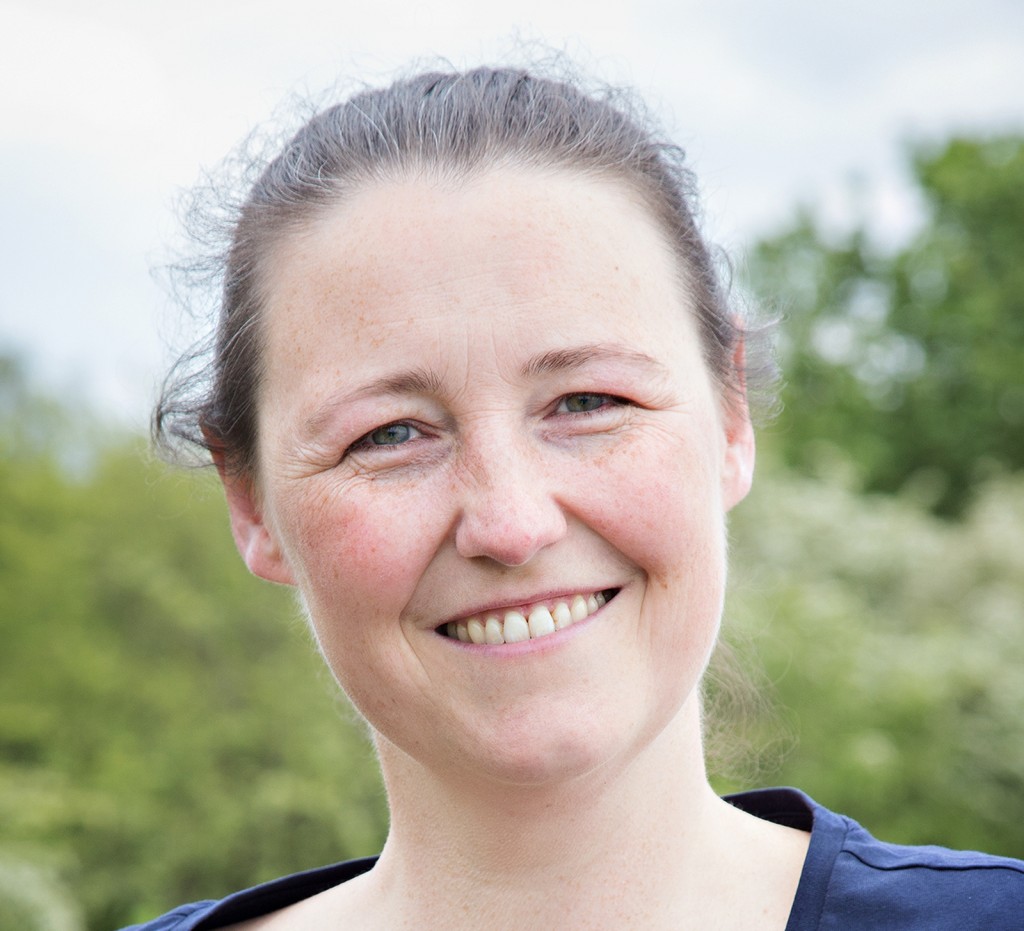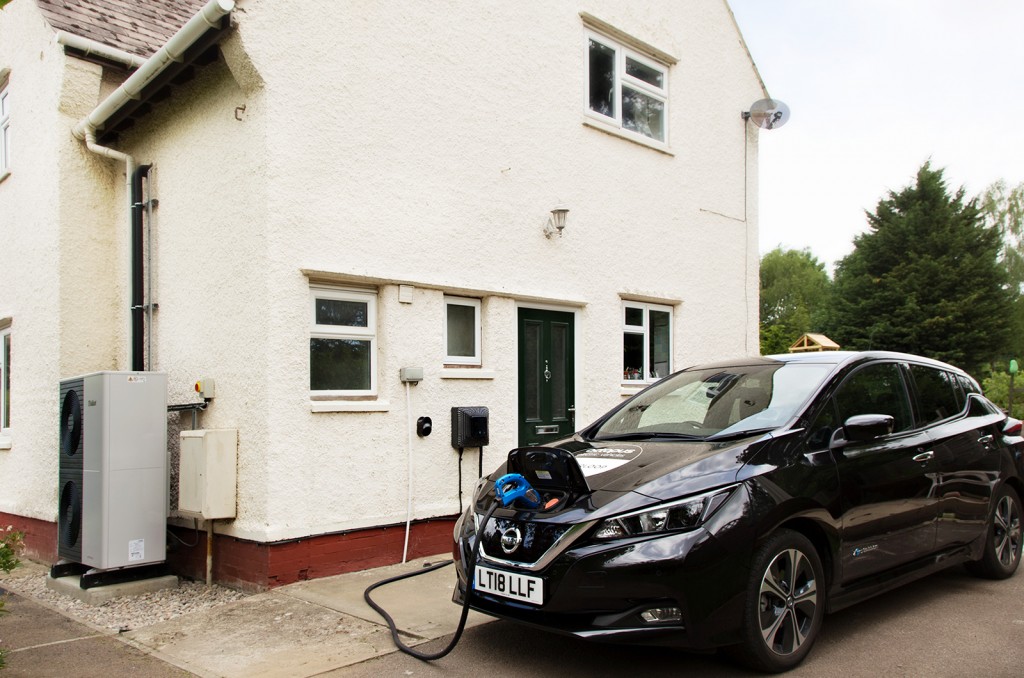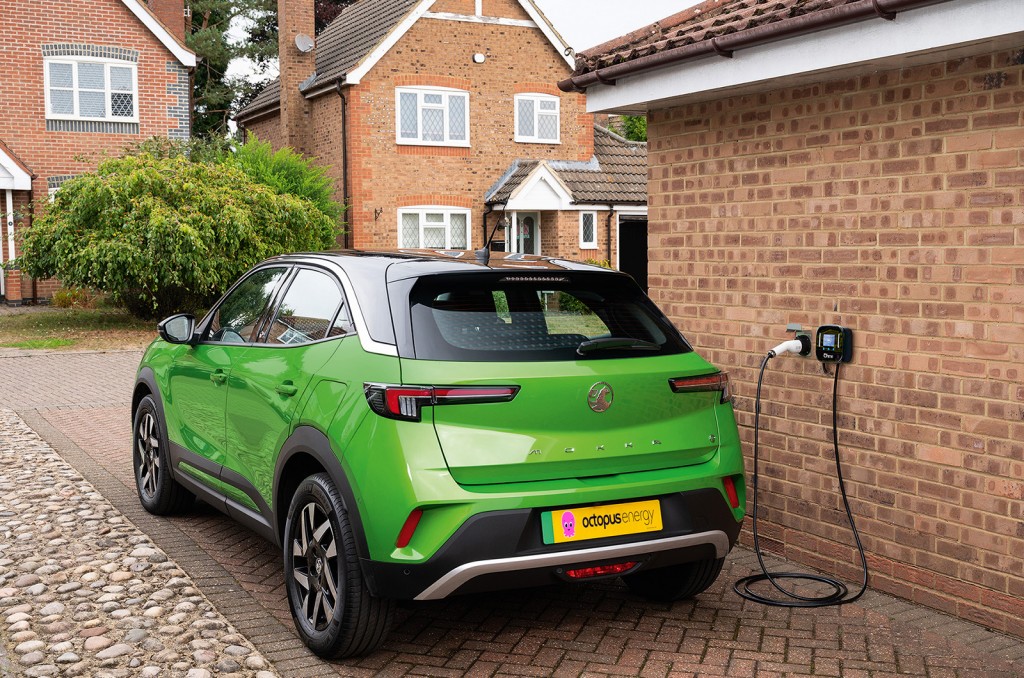
“Green business is good business, and any delay in developing that business then people and the planet will suffer.”
As Director of Technology & Innovation at Octopus Electric Vehicles, Claire Miller believes that any calls to delay decarbonisation are misplaced, and is working instead to speed up the transition to prove that the doubters are wrong.
The latest electric vehicle news in your inbox: get our FREE newsletter
Miller studied mechanical engineering before working as a tech consultant for start-ups, and joined Octopus Energy full-time in 2019. Today she’s at the heart of some of the firm’s future-looking businesses, overseeing, among other projects, its Powerloop vehicle-to-grid trial, and its electric car leasing arm, Octopus Electric Vehicles.
Here she talks more about the reasons behind her convictions, the progress made by the businesses she oversees and some of the reasons why Octopus is able to seize opportunity and implement change where others struggle.

How do you react when people say that the current energy crisis means we have to slow the green energy transition?
“I understand the difficulty, and I understand the pressures on people, but green technology is the solution to these issues. Green energy can be more affordable and better for the population and planet. Every day, month or year we push back, we are causing people and the planet real hardships.
“If you come at it from the perspective that nothing worth doing is easy, then you have to start the journey as early and with as much commitment as possible. 40,000 people die a year from air quality related illnesses, right? The ramping of the mandate to sell EVs is still to be decided. The 2030 ban on the sale of new, combustion engined cars is just the start - we haven’t even started looking at HGVs with any certainty yet. The benefits are there, but to get the most from then it needs tying together.
“We need to hold the line at least, but probably in reality go faster. While the government considers privately what to do, everyone is left hanging. The creation of the Department for Energy Security and Net Zero has to be a positive.”
Octopus is growing rapidly, and set to profit from the green transition. What sets it apart in this space?
“You have to believe green business is good business. Behind every decision at Octopus is a motivation to make a difference, and being constantly mindful of that gives us a sense of purpose and direction; we could go off in all sorts of ways, but those principles keep our focus. I think that does set us apart from other organisations.
“I also like to think that we can do that because we were quick to adopt a ‘tech for good’ approach. We always aim to enter a sector with the goal of using technology to enable us to do more with less. That ethos is alive and well today, and driven by our CEO Fiona [Howarth]; as an example, I’m going with her tonight to a meeting of start-up founders to discuss if we can help them move further and faster.”

What role can Octopus Electric Vehicles play in that?
“The motivation was to try and tie together some of the different elements of the business, and see where we could grow our ecosystem.
“When Octopus started in this space it was early days for Octopus as a whole, and it was a time when there was a lot of learning and educating required around the whole electric vehicle scene; people were aware of them, but not really aware of the potential.
“By building out a flexible energy tariff that was cheap overnight Octopus was able to build a reputation among owners and would-be owners. We became an obvious place for early electric car adopters to come and discover our business.
“So we then started operation as a broker, with the motivation of helping customers get into electric cars in the easiest way possible. We wanted to be a one-stop shop for the car, the charger, the tariff and so on.
“As we built up, the next big step was to introduce the idea of paying for your car via salary sacrifice, saving the 25% or 40% tax you’d otherwise pay on that money. We’ve built a system that takes a customer through the entire journey to owning and using an EV seamlessly. Today we have thousands of customers and we are growing fast.”
Have you seen any reduction in demand as the cost-of-living crisis has become more acute?
“No. Demand is still growing and we don’t see it slowing down.
“Our greater challenge is finding stock, but I also think we’ve been pretty agile and innovative there. The key has been striving to offer excellent service despite the industry challenges, and by building some key relationships around the ecosystem we’ve done a pretty good job of finding stock. In some cases we have cars ready to go, and in other instances we believe we can get the cars faster than rivals.
“In particular, we’ve worked hard with manufacturers to build relationships, and in some cases we’ve been pretty excited to be the ones who had brought the first vehicles into the country. Octopus has built a great reputation, and it’s brilliant they want to work with us - but at the same time we don’t want to rest on our laurels. There’s more to come.”

You’re an engineer by training, spent a lot of time freelancing as an advisor for tech and R&D innovators, and have worked across a lot of sectors. Is automotive different?
“The difference is the transition it’s going through; we’ll certainly never see the combination of mobility and energy provision coming together in the same way again, so regardless of any macro effects, it’s an incredible time.
“There’s another dimension too, around connectivity and data. That could change the landscape, and I find that incredibly interesting as well. The exciting point for me, and Octopus, is that it is opening opportunities to do things better and faster - and that disruption makes it more interesting for customers.
“We have no legacy systems, we are used to operating from the digital cloud, we can put the energy and the vehicles at the heart of what we do for our customers. That’s an opportunity for us to push the barriers.”
You also ran Octopus’s vehicle-to-grid-trials, which are just concluding. What did you learn?
“It was like a mini business within a business - or even mini businesses within a business. At first there were only about ten of us working on it. There was everything from customer experience to software, hardware, energy transition and more to consider. It was a nascent development and we were putting ourselves at the heart of this exciting world.
“There were all sorts of issues like how we took information from the National Grid and how we got the vehicle to talk to the charger. There was everything from customer experience to software, hardware, energy transition and more to consider. So much to do, but so exciting; lots of sweat and tears and frustration, but you have to remember that in new circumstances lots of your work doesn’t go anywhere, and that’s okay.
“Customer wise it was a great learning environment; the most engaging experiences are usually the most simple ones. You need to build something and then cut and cut again. The Google search bar is an incredible example of that. It’s a core principle at Octopus and it served us well as we developed this incredibly complex ecosystem.
“In terms of the technology, the final part was linking to the National Grid’s Balancing Mechanism. We proved it could be done, and that it could both save customers money and balance demand on the grid. The next step is developing the technology further for the mass market, but if you look at any future scenario planning it’s pretty clear that V2G can play a hugely significant role in energy security.”
When can that technology be sold in the mainstream?
“I’d like to think by this time next year you’ll see the first opportunity to buy the whole package. It may not be mainstream, but I’d like to see those interoperable systems available. The Powerloop trial proved that in the real world the idea could work - no more talking, no more speculating that it should be possible, we’ve done it.
“From there, it should move forward quickly. There’s a lot of development to be done, and a lot of alliances and partnerships that probably need forging between the different sides, and especially the National Grid, but the clear point is that the technology can work, and that we’re ready and waiting to deploy it now.”
Could Octopus’s leasing model look beyond cars, into other e-mobility innovations?
“It’s possible, but the challenge is around how you have a structure that can support them with the sort of benefit-in-kind tax structures that make cars attractive?
“We have looked at two-wheeled transport, and there are some very cool electric motorbike brands such as Maeving out there, and then there’s e-bikes and potentially e-scooters, when the law is clearer. I’d love to see more ideas around promoting active travel, but for now it’s a case of seeing how plans for it unfold.”
READ MORE
Subscribe to the Move Electric newsletter
e-CARS
Ten electric cars we're excited for in 2023
Getting an EV sideways: how easy is it to drift a Kia EV6 GT?
Q&A: Jaguar Racing's Sam Bird and Mitch Evans on Formula E's new era
e-BIKES
Ten electric bikes we're excited for in 2023
Can you get fit using an electric bike?
e-MOTORBIKES
Ten electric motorbikes we're excited for in 2023
Super Soco TC Max electric motorbike review
Cake and Polestar team up for new special edition Makka e-motorbike
e-SCOOTERS
Planned laws to legalise private e-scooters face delay
Five key takeaways from the rental e-scooter trials report
Which train firms have banned e-scooters from their services?
e-WORLD
Move Electric's best features of 2022: lap records, tuk-tuks… and sausage rolls
Volvo Trucks keeps on electric trucking with three new models

